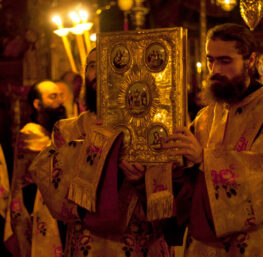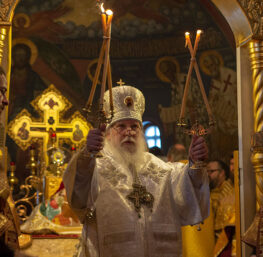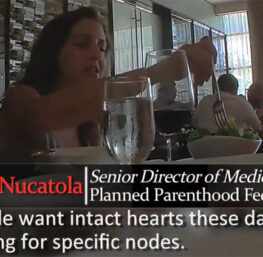Acton Institute | Rev. Robert A. Sirico | Nov. 5, 2008
What more proof do people need in light of the historical record that bureaucratic interventionism – I may as well say it out loud – socialism – is not the cure for what ails us but bad medicine, a poison that more and more is the principal thing that does ail us. And this medicine is precisely what has been prescribed, merely in various disguises, by almost all political leaders. Even people who have professed a free market orientation seem to have fallen prey to Bastiat’s aphorism that everybody has the illusion they can live at everyone else’s expense, without remembering that sooner or later the pocket in front of you will be empty as well. When the economic preoccupation is redistribution of wealth, rather than on removing the barriers to its production, we are in a precarious and increasingly vulnerable position.
[…]
It is amazing to stand in this ballroom 18 years after our beloved Bill Buckley was with us here. This legendary intellect came to what was then a small, obscure organization with 5 people on our staff. A committed proponent of the cause of capitalism, he did not permit the rigors of supply and demand to prevent him from committing intentional acts of charity (the best kind) to foster right ideas. The world (as well as our reading vocabulary) is a diminished place for his absence; and we will express our homage for his mentorship in due course in the person of another good friend, a long time collaborator with Bill on National Review (and fellow New Yorker I might add), the lovely and formidable Kate O’Beirne.
It is now the stuff of legend to note that in the inaugural issue of the National Review its editor, surrounded by a sea of unquestioned and unquestionable collectivism, when all things seemingly acquiesced to the thousands of nuclear warheads pointed directly at us; it was then that National Review calmly, if quixotically stated its mission; and I quote, to stand “athwart history, yelling Stop, at a time when no one is inclined to do so, or to have much patience with those who so urge it.”
Permit me, then, to frame my remarks this evening with the memory not only of those words, but its accomplishment, fresh in our minds. May I give voice, for just a moment, to something I sense we may all be feeling at this moment? I refer, of course, to the erratic nature of both the markets and politics in recent weeks. One senses a deep frustration on the part of those who worked hard to delay gratification so as to secure their future and that of their families. There is a foreboding on the part of everyone for fear that no one really knows the whole of what is happening and may soon happen to us, much less to see a way out of the difficulties.
Yet I stand before you tonight hopeful, even if soberly so. I say hopeful first because I am a Christian and always have a reason for hope. But also, because I am unshaken in the conviction that the idea Acton represents is precisely that ‘way out.’
That idea – which could have been an inoculation but may now have to be an antidote—is a body of thought representing a refined and proven tradition which we have attempted to represent over the whole of Acton’s history. The idea of which I speak, boiled down to its clearest expression, is the synthesis of faith and freedom; liberty and virtue; free markets and moral responsibility; between prosperity and a deep practical and personal concern for the poor and marginalized.
We have worked for nearly twenty years to limit the tendency of the State to corrupt our civil, economic and moral lives only to wake up as though overnight to massive government interventions and a near takeover of vast sectors of our economy. Let no one say to their grandchildren that when this happened there was no dissent. Tonight, I dissent!
[…]
More than ever before, our voice will be needed, and I am convinced that the Acton Institute stands at the right place and at the right historic moment with precisely the right ideas to propose. And what are those ideas?
That when one divorces freedom from faith both freedom and faith suffer. Freedom becomes rudderless (because truth gives freedom its direction). It is left up for grabs to the most adept political thug with the flashiest new policy or program; freedom without a moral orientation has no guiding star. Likewise, without freedom and the ability to make moral, economic and social choices, people of faith have restricted practical impact. Theocracy is the destruction of human freedom in the name of God. Libertinism is the destruction of moral norms in the name of liberty. I say a plague on both their houses.
. . . more



